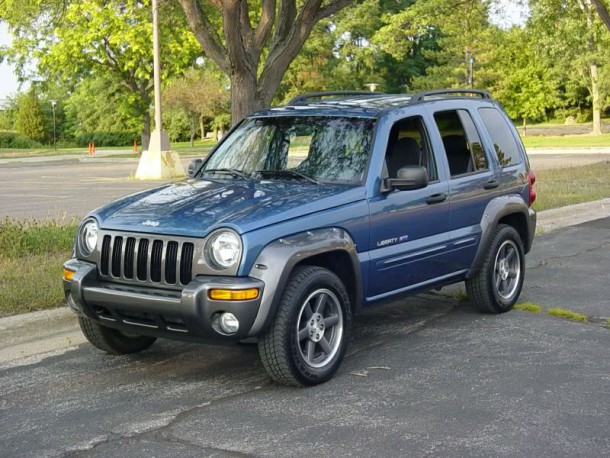No, Your ‘Rare’ Car Isn’t Going To Shoot Up In Value
Posted on Jun 15, 2017 in Editorials | 1 comment

I wish I had $100 for every time someone told me their rare car was going to shoot up in value. If I did, I would invest it in the stock market, which is something that actually might shoot up in value. Their rare car, of course, will stay behind, largely due to the old adage that just because something’s rare doesn’t mean it’s valuable.
I remember the first time someone told me their car was rare and so it would increase in value. I was in high school, and a classmate of mine had just bought a Jeep Liberty Freedom Edition, or some such bizarre Jeep special edition where they change the wheels and add two-tone seats in an attempt to get people to buy it.
Even though the Liberty was only a couple of years old at this point, anyone who had any sense already knew it was shit; smart people were buying RAV4s and Escapes and CR-Vs even then. So I asked her why she did it in a very non-accusatory way, and she told me something I still remember: her particular Liberty was a Freedom Edition (or some similar special edition), it was the only Freedom Edition her dealer was going to get, and it would probably keep its value a lot better than the other Freedom Editions.
I wish I knew where that car was now. My guess is in a scrapyard with the rest of the 2004-ish Jeep Libertys, being harvested for its only usable parts — namely, tires and whatever fuel was left in the tank.
Since then, I have been approached countless times by countless people who have discovered I’m a car enthusiast, and they’ve insisted they have some unique and rare car that’s going to shoot up in value. And invariably, this car is often unique and rare, but just as often unlikely to shoot up in value. I once had someone say this to me about a Chrysler 300M. What I wanted to say back was that yes your car is unique and rare, but that’s because it’s one of the few 300Ms still left on the road. The others all suffered transmission problems back when Facebook still had a “the” in front of it.
What I want to say to these people is what I’m saying to you right now: there is absolutely no chance of these cars going up in value.
I’m sure you’ve heard this too. People who bought 2002 Thunderbirds are convinced their car will become investment-grade someday, when the Thunderbird market comes back and people realize just how cool they are. Uh, no. That isn’t going to happen. The 2002 Thunderbird is a Lincoln LS with better PR, and no, you don’t need to “hold on to it for your kids.” Your kids don’t want it. Your kids are going to have to explain on Bring a Trailer how they came to own a 2002 Thunderbird with 89 original miles.
I have a former neighbor who made a similar decision about the Chevy Camaro. Nostalgic for Camaro models of years past, he purchased a 2002 Camaro right at the end of the model run, thinking the “last year” would someday be worth something. Then he preceded to daily drive it for years. Now, it’s sitting on steelies and hubcaps year round (maybe he preserved the “original” wheels), Chevy revived the Camaro eight years later and made 40 zillion of them, and his 2002 model — a convertible V-6, by the way — is worth approximately as much as a new television.
Nice investment.
Now, I admit that occasionally these people are right. In the 1980s, a lot of people predicted the surge in popularity that would someday wash over the Buick Grand National market, so many people bought Grand Nationals and stored them in an air conditioned garage bubble, planning to keep them for the rest of time. Admittedly, those people probably made some money: a nice Grand National was worth, what, $30,000 back in the 1980s? And it’s maybe $40,000 today? Good going! Strong investment!
Only, there’s a problem: $30,000 in 1988 money is $62,000 in 2016 money. And I don’t even want to tell you what you’d have if you had simply put the thirty grand in a stock market index fund. Of course, then you wouldn’t have been able to bring your friends out to the garage and show them your Grand National-in-a-bubble.
So, on the off chance that someone who isn’t interested in cars reads this; someone who doesn’t know too much but knows enough to believe that they have something in their garage “worth keeping,” I have this to say: stop keeping it. Get out and drive it. Have fun with it. Unless it’s actually desirable and rare — ask your local car enthusiast — you probably won’t hurt its value. And for God’s sake, stop coming up to me and telling me you have a car you “can’t wait” to pass on to your kids one day. Because when the words “2009 Mustang California Special” come out of your mouth, I’m going to stop listening.





“Only, there’s a problem: $30,000 in 1988 money is $62,000 in 2016 money. And I don’t even want to tell you what you’d have if you had simply put the thirty grand in a stock market index fund.”
About 250 large, assuming it tracked the Dow. Not too bad.